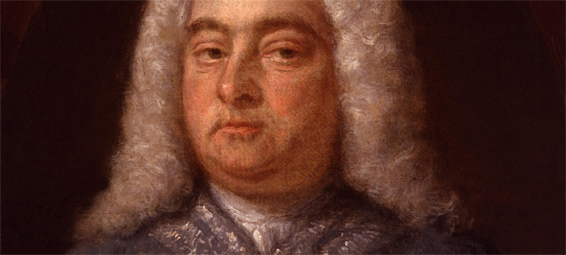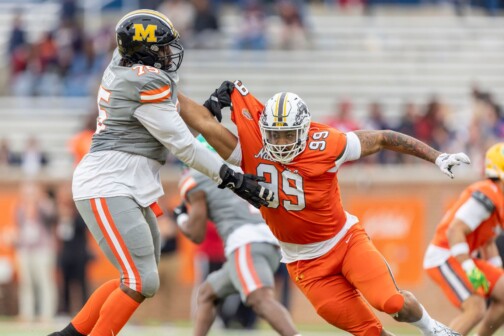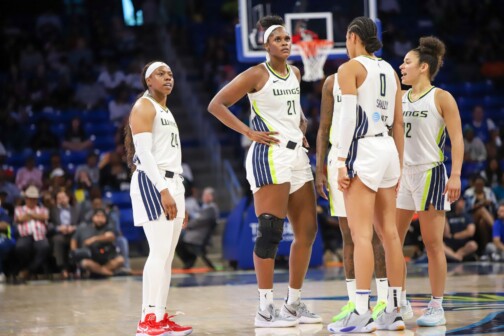Once again, it’s Christmastime, when, amidst increasingly obscene commercialization and spiritual degradation of the season, musicians and music lovers can turn, for relief, to the oldest concert piece to remain continuously in the repertoire since its premiere in 1741.
I first became acquainted with Messiah not quite half a century ago as a boy alto in the community chorus of a small town in Oklahoma, squeaking through the melismas of “He shall purify-hi-hi-hi-hi-hi” as part of an ensemble of other adolescents, highs school kids, and middle-aged and elderly church choristers under the guidance of a stern and incredibly devoted high school chorus director. I loved it from the start, because:
1. It is a magnificently musically crafted work on all levels. The lean, almost transparent, always dramatic counterpoint can hardly fail to send chills up the listener’s spine. The interrelationship of tonalities—most notably, the almost torturous struggle from E minor to C major in part I—is unsurpassed in any multi-movement vocal work.
2. While appropriating—and sometimes revising—texts from the King James Bible, Messiah creates a self-sufficient literary work that functions on several levels. For Christians of all flavors—traditional, non-traditional, and “traditionalist”—it suggests a statement of faith acceptable for the most ironclad fundamentalist, the most eclectic liberal, and anyone in between. At the same time, it provides a vision—or, if the listener so chooses, a metaphor—of a Universe striving toward perfection. A Catholic, a Pentecostal, a Baptist, an Episcopalian, or any other brand of Christian can take comfort in this text; and so can, albeit on a different level, a Jew, Moslem, Atheist, Buddhist, or any other thoughtful human being.
3. Its annual presence on the concert scene, ranging from performances by major orchestras to community choruses to church choirs large and small, provides a unifying factor in the world of classical music. There are few works that can and will be presented, and presented convincingly, this season by the Los Angeles Philharmonic, the Houston Symphony, and the twenty-member church choir down the street. Authenticize it, romanticize it, reduce it, expand it, Messiah still works.
4. The constant annual reiteration leads to an in depth knowledge of a particular historical style; its presence inspires widespread exploration of performance practice and possibilities for baroque music. It has been a reliable introduction to the joy of classical music and choral-orchestral music for generations of music lovers.
Here’s what I don’t like about the annual fuss over Messiah:
1. Hearing, singing, or playing Messiah year after year can become a tiresome ritual—the most odious aspect of which is the obligatory stand-at-attention during the “Hallelujah” Chorus. (How often is that audaciously joyful music, almost radical in its ecstasy and assertion of eternal bliss, lost in the shuffling of feet and banging of chairs during the opening passage? Has anyone in the United States actually heard an undisturbed live performance of the opening phrase of that movement in the past hundred years?)
2. The reliance on a single work to represent an entire season crowds other fine oratorios and thought-inducing choral-orchestral works out of that spot in the repertoire. Bach’s Magnificat, Vaughan William’s Hodie and Dona Nobis Pacem, and a number of other seasonally appropriate masterpieces all too rarely come before a public that gets its holiday fix from Handel’s Messiah. How about a Beethoven’s Ninth—or Beethoven’s Choral Fantasy—on New Years Eve? Why not get out on the edge in mid-winter, and give people of all faiths (or lack thereof) something to think about with Bloch’s Sacred Service paired with Howells’ Hymnus Paradisi, or Tippett’s A Child of Our Time, or a concert mass by Beethoven or Gounod or Mozart?
I’ll admit, I still love a good performance of Handel’s Messiah, and hope that everyone who hears (or sings, or plays, or conducts) Messiah this year is inspired not only to mentally dig beneath the surface of this masterpiece, but to look around at parallel masterpieces as well.
Handel’s Messiah will be presented by the Fort Worth Symphony with conductor David Thye and the Southwestern Seminary Master Chorale at Bass Performance Hall on December 3; the Dallas Bach Society and conductor James Richman (who also, to their credit, have an excellent record of presenting non-Messiah seasonal concerts) will perform the venerable oratorio on December 21 and 22 at the Church of the Incarnation in Dallas. Messiah enthusiasts can also join an audience sing-along version with the Bach Society on the afternoon of December 22, also at Church of the Incarnation.
Image: George Frideric Handel by Francis Kyte (via)






